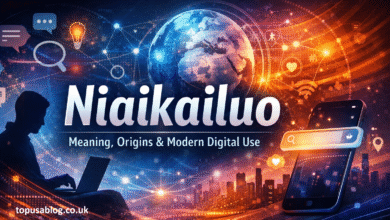Being Authentic: WhatutalkingboutWillis

Being Authenticity has become a buzzword in today’s fast-paced, digital-driven world. Whether we’re talking about personal branding, relationships, or professional growth, people constantly crave something real. That’s where the phrase “being authentic whatutalkingboutwillis” comes in—an unusual yet catchy way to remind us that authenticity isn’t just about appearances. It’s about aligning who you are on the inside with the life you live on the outside. Let’s dive deeper into this concept and explore why it matters more than ever.
What Does It Really Mean to Be Authentic?
When we say “being authentic,” it might sound like some motivational cliché, but it’s much more than that. Authenticity is about stripping away the masks we wear and showing up as our truest selves. In a world where people are constantly filtering their lives through social media highlights, being authentic becomes revolutionary. It’s about living in such a way that your values, words, and actions are in harmony.
Authenticity doesn’t mean sharing every detail of your life or being brutally honest in ways that hurt others. It’s about balance—honoring your truth while respecting others. That’s where the playful “whatutalkingboutwillis” twist comes in. It’s like a check-in phrase: are you really being yourself, or are you putting on a performance? Asking this question helps keep us accountable.
For many, the journey to authenticity involves self-discovery. It means reflecting on what really matters to you, instead of what society says should matter. Without that clarity, we risk living lives that feel more like someone else’s script than our own. And when you think about it, that’s exhausting.
Why People Struggle with Authenticity

If Being Authentic is so powerful, why do so many people find it hard to practice? The simple answer is fear. Fear of rejection, fear of being judged, and fear of not fitting in. From an early age, most of us are conditioned to please others—whether it’s teachers, parents, or peers. Over time, that conditioning can pull us further and further from our real selves.
In professional environments, authenticity can be especially tricky. People often feel they need to present a “perfect” version of themselves to get ahead. The irony is that true leaders and innovators usually stand out because they dare to be authentic, not because they fit a mold. When we hide our uniqueness, we rob the world of our true contributions.
Another barrier is comparison. Thanks to social media, it’s easier than ever to measure our lives against others. But when we’re constantly comparing, we stop listening to our own voice. “Being authentic whatutalkingboutwillis” becomes a playful reminder to snap out of that cycle. Instead of trying to live up to someone else’s standards, it’s about asking: what would my life look like if I stopped pretending?
The Power of Authentic Connections
One of the greatest rewards of authenticity is the quality of connections it brings. Being Authentic Think about it—when you meet someone who’s genuinely themselves, don’t you instantly feel more comfortable around them? Authenticity attracts authenticity. It creates a safe space for people to open up, share honestly, and build trust.
In friendships, authenticity prevents shallow connections. Instead of bonding over surface-level interests, you’re able to form deeper relationships based on mutual understanding and respect. That’s the kind of connection that stands the test of time. When life gets tough, authentic friends are the ones who stick around.
In romantic relationships, authenticity is even more vital. Pretending to be someone you’re not might help you impress at the start, but it sets the stage for long-term disappointment. Being upfront about who you are, what you value, and what you want allows both partners to know whether they’re truly compatible. At its core, “being authentic whatutalkingboutwillis” is a reminder that love built on truth is love that lasts.
Authenticity in the Workplace
Professional life often puts Being Authentic to the test. It’s easy to get caught up in office politics, corporate jargon, and the pressure to climb the ladder. But here’s the truth: authenticity in the workplace is not just refreshing—it’s a competitive advantage.
Colleagues and clients gravitate toward people they can trust. When you show up as your authentic self, people know what they’re getting. You’re consistent, transparent, and reliable. That’s far more valuable than someone who’s always trying to play a role or say what others want to hear.
Moreover, authentic leadership inspires loyalty. Teams thrive when they feel their leaders are approachable and genuine. Leaders who admit mistakes, share their thought process, and align actions with values create environments where others feel safe to do the same. In fact, research consistently shows that authenticity is one of the most admired traits in leadership. So next time you catch yourself putting on a professional mask, remember: “whatutalkingboutwillis”—is this really you, or just a role you’re playing?
The Mental Health Benefits of Being Authentic
Authenticity isn’t just good for relationships and careers—it’s also essential for mental health. Living a life that isn’t true to who you are creates stress, anxiety, and even burnout. When we constantly suppress our real thoughts or pretend to be someone else, we drain ourselves emotionally.
On the other hand, living authentically feels liberating. You don’t have to carry the weight of false personas or worry about being “exposed.” There’s a natural ease that comes with knowing you’re showing up as yourself. That ease translates into lower stress levels, better self-esteem, and greater overall happiness.
Furthermore, authenticity fosters resilience. When life throws challenges your way, knowing your true self gives you a stronger foundation to handle them. Instead of crumbling under pressure, you’re more likely to respond in ways that align with your values. That’s the kind of strength that sustains long-term well-being.
Practical Ways to Practice Authenticity
Talking about authenticity is one thing—living it is another. The good news? Like any skill, authenticity can be cultivated. Here are some practical ways to do just that:
First, practice self-awareness. Spend time reflecting on your values, strengths, and areas for growth. Journaling or meditating can be great tools for this. The more you understand yourself, the easier it becomes to live authentically.
Second, embrace vulnerability. Being authentic often requires admitting when you don’t have all the answers or when you’ve made mistakes. Vulnerability isn’t weakness—it’s courage in action. By opening up, you invite others to do the same, deepening your connections.
Finally, set boundaries. Being authentic doesn’t mean saying yes to everything or everyone. It means honoring your limits and respecting your needs. When you set clear boundaries, you reinforce your identity and prevent burnout. Think of boundaries as guardrails that keep you aligned with your authentic self.
Why Authenticity Will Always Be Relevant
Trends come and go, but authenticity never loses its value. In fact, the more the world changes, the more people crave authenticity. With AI, digital personas, and endless marketing messages competing for attention, what stands out is something real. That’s why the phrase “being authentic whatutalkingboutwillis” is not just quirky—it’s powerful. It cuts through the noise and points us back to what really matters: being ourselves.
Whether in personal life, professional spaces, or digital platforms, authenticity is the anchor that keeps us grounded. It’s not about being perfect—it’s about being real. And when you’re real, you’re relatable. You inspire others, build trust, and live a life that feels genuinely fulfilling.
Final Thoughts
At the end of the day, “being authentic whatutalkingboutwillis” isn’t just a fun phrase—it’s a philosophy worth adopting. It challenges us to pause and reflect: am I being true to myself, or am I just performing for others? The more often we ask that question, the closer we get to living lives of integrity, purpose, and joy.
Authenticity may not always be easy, but it’s always worth it. So the next time you find yourself doubting whether to share your real thoughts, pursue your real dreams, or stand firm in your values, just smile and remember: “What you talking about, Willis?”—because if it’s not the real you, it’s not worth it.



